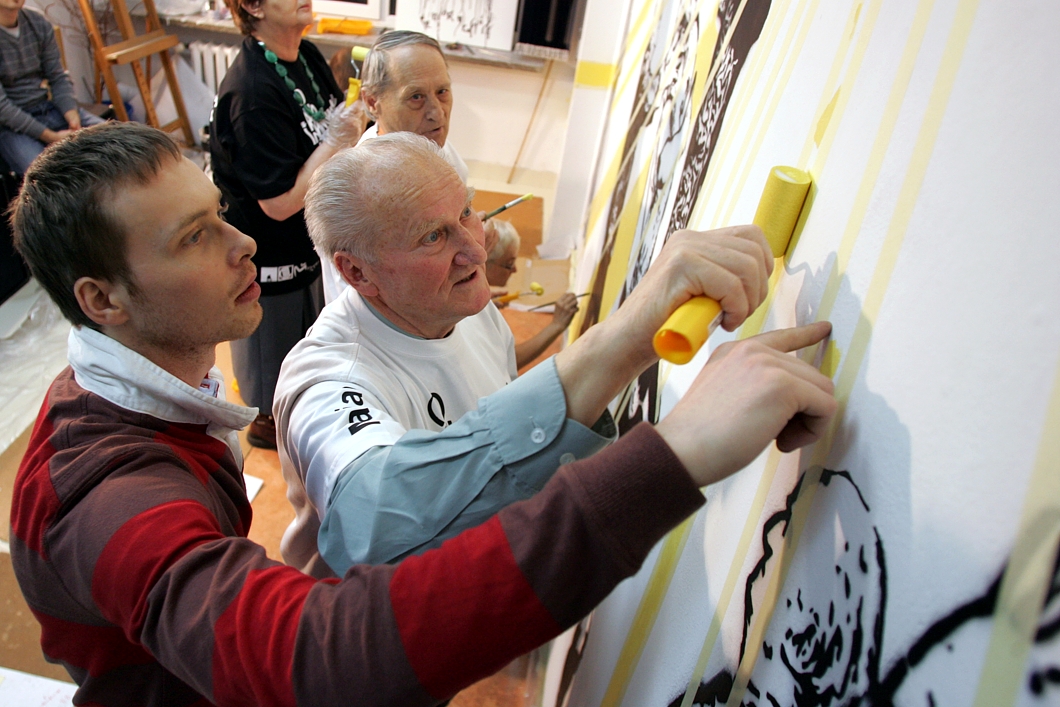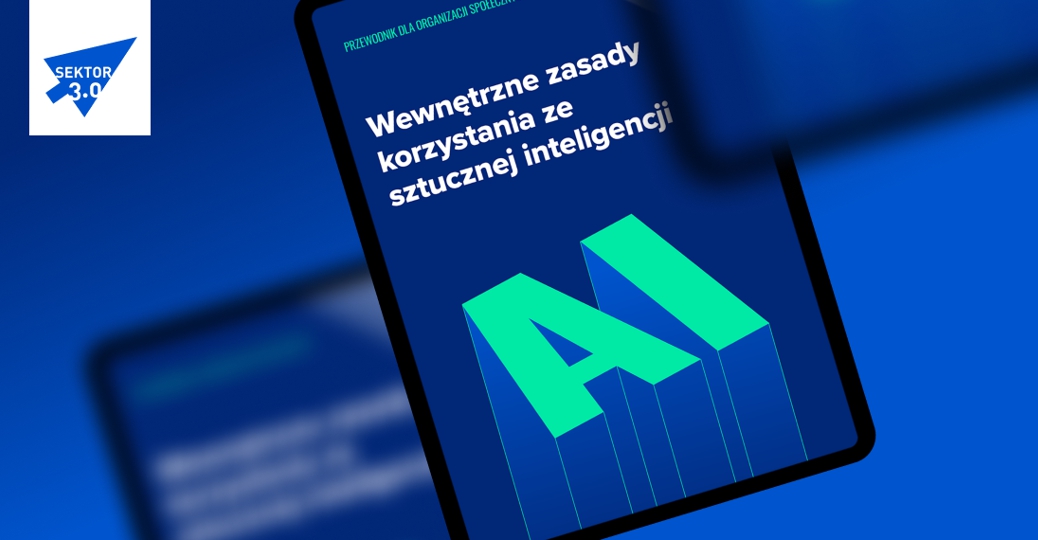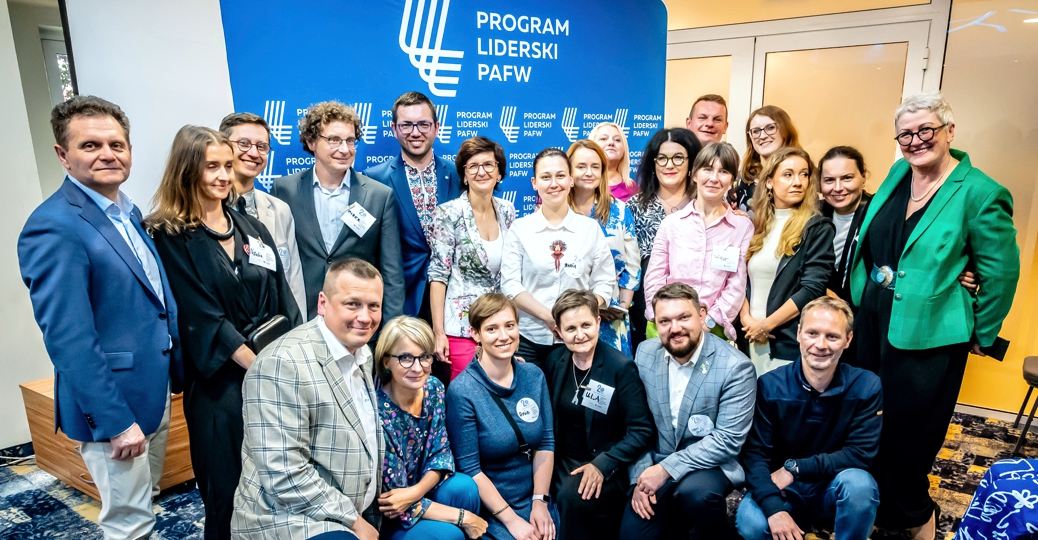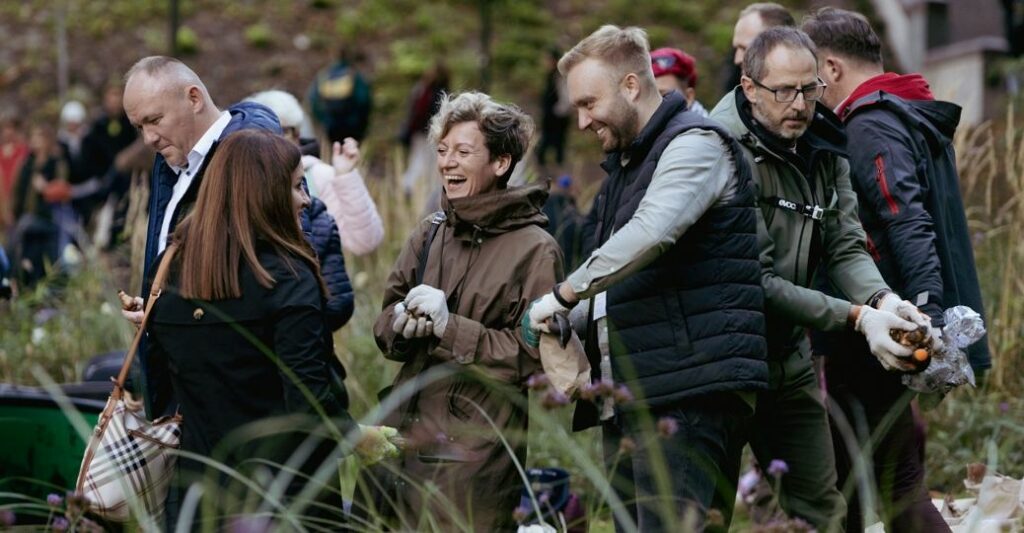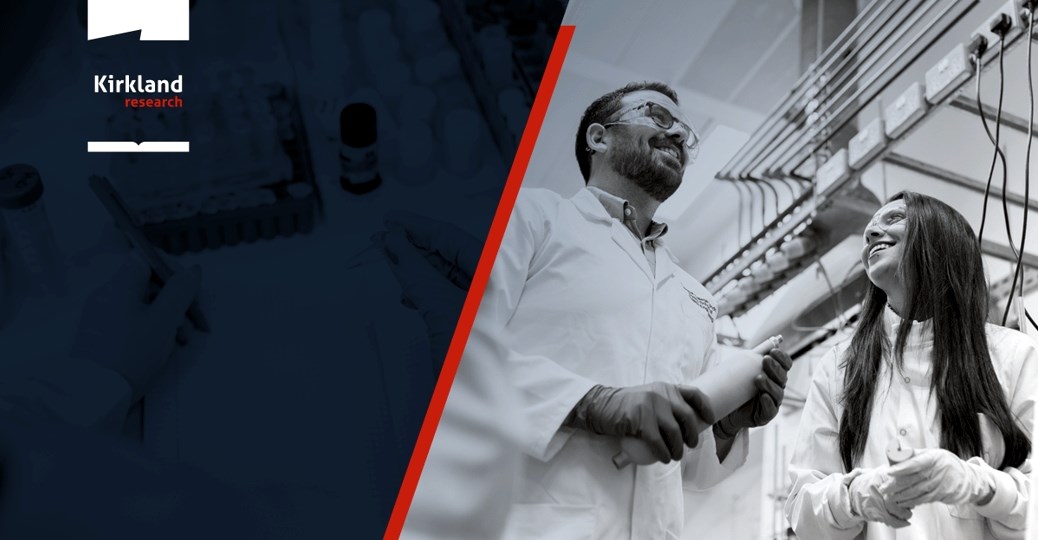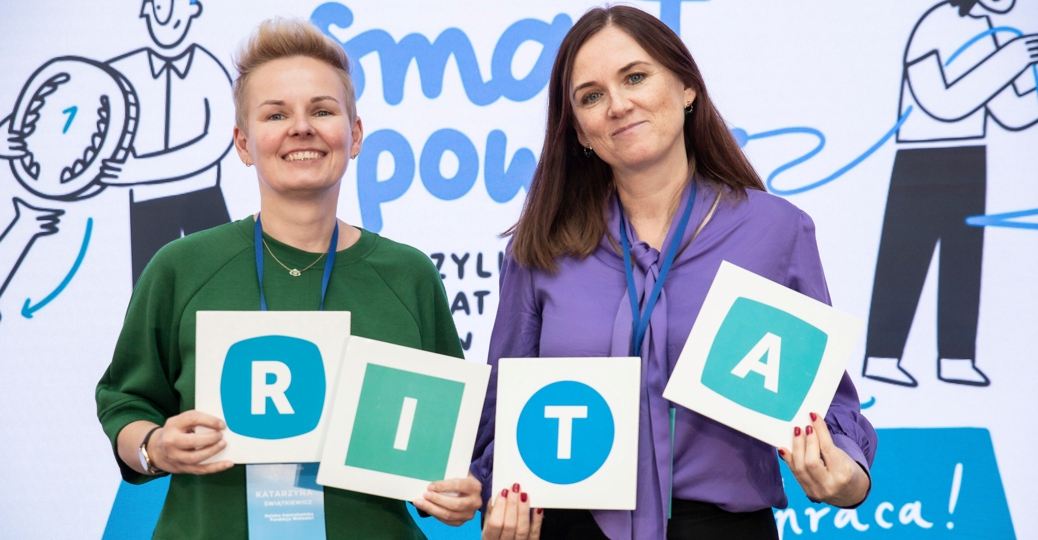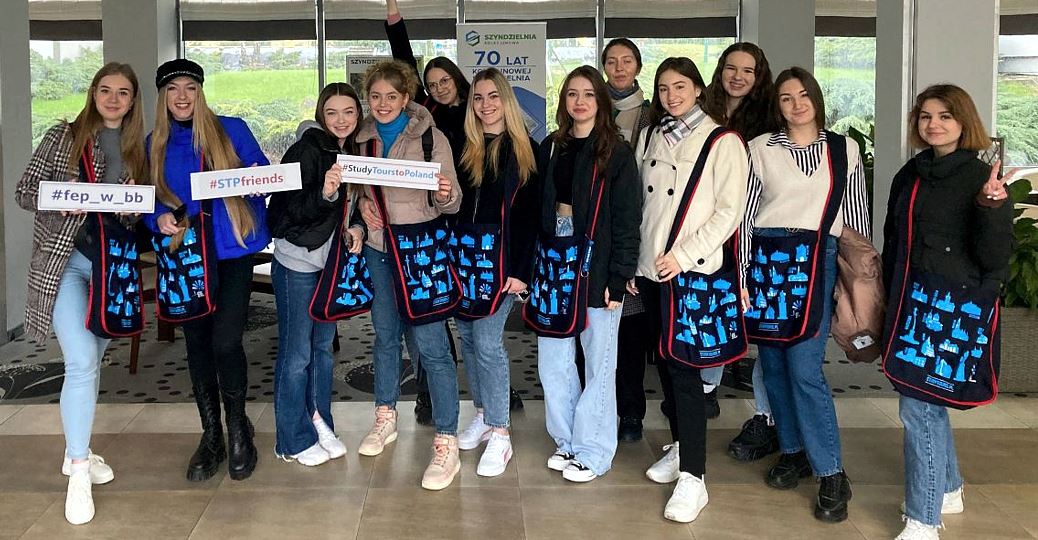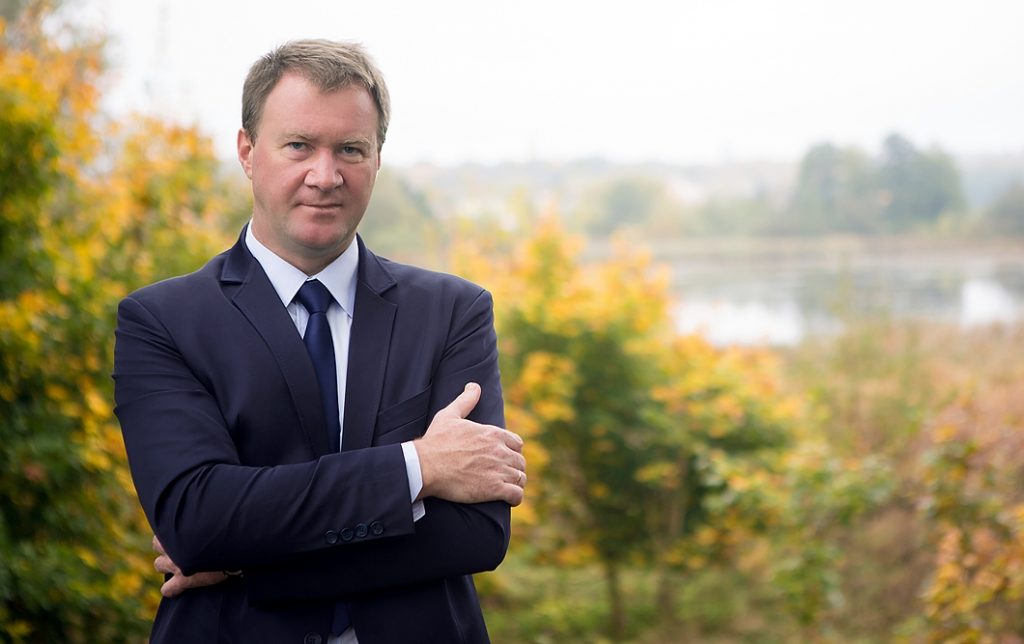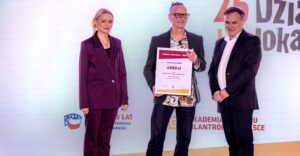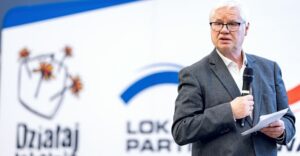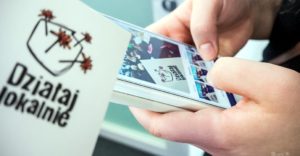The residents of Złocieniec have probably the most modern mayor in Poland. Krzysztof Zacharzewski – the man with a vivid personality, a social activist, a philosopher from Pojezierze Drawskie. Had it not been for him, there would have been no State Collective Farm Museum at Bolegorzynie, while Drawsko and Złocieniec would continue to quarrel over the cannon. Having a choice whether to invest in the paving stone or a man, he will choose the latter. He is not afraid to govern, as he is used to struggle for the Association’s survival. A few months after the election he tells Katarzyna Karpa-Świderek that… he can manage and shares his thoughts.
Katarzyna Karpa-Świderek: ‘Is there enough place in Złocieniec local government for a rebel? Won’t he blow it up from inside?’
Krzysztof Zacharzewski: ‘I have been working for a local government for ten years, moving up career ladder. I think that the new idea of working for administration which the office workers dread about is a change from hourly work to task-based work. Currently the office worker focusses his/her attention on coming to the office at 7 a.m. and going home at 3 p.m. By changing this attitude we can give people a chance to develop in certain areas related to investments, environment protection, agriculture, promotions or tourism and get satisfaction from their work. We can introduce some life into the office. I believe such an open office form could change the office workers attitude towards an investor and proverbial “applicant”, make them see him as a person whom they shall help and not get rid of.’
‘This is based on the assumption that people who work in the offices identify themselves with their work, have the sense if not of the mission then at least of doing something that has a certain value. Do you think they really feel like that? I have met a lot of people who work for the office just because someone helped them to get this job.’
K.Z.: ‘These are the lucky ones. We had a poll carried out at the Senior High and Vocational Schools Complex which showed that most of people, 60% as far as I remember, who are in their last year of school and soon will start their adult life, when asked what they would like to do answered that they would like to work in the local government office. It is very sad that all they dream about is to settle somewhere, entrench themselves there and in fact at the very start of their life finish it mentally. As the local government office is not associated with creativity but rather with guarding the existing order. In small districts innovation is perceived rather as something dangerous than good.’
‘And how do people understand the role of a social activist? Is a social activist the person they want to have as a leader of their town?’
K.Z.: ‘That is an interesting question. I have noticed that the campaign usually is carried out in form of the war of posters – there must be plenty of them and they have to be aggressive. While I decided that the campaign can be imaginative. There was the Kindness Day on November 21, so we decided to give people balloons, just like that, and in the morning, when people were going to work or to school, the whole town was full of colorful balloons. It turned out that people were very glad but soon after they started to ponder if a person who organizes an action only to make a nice and pleasant atmosphere should be a mayor. After all, you can’t build your future on balloons! Money should be invested in something real, real investments such as pavements. They didn’t understand that also the actions aimed at people can be seen as an investment. Actions which show that people are important. Actions which are addressed directly at people, which show that we care for people. Such things were thought unimportant before. Until recently people wanted to know only how many kilometers of new roads have been built and they didn’t ask what had been done to get young people involved into social activity. So the dilemma is if social activists are able to be tough managers, make decisions, take a risk. I know they are because that’s what we do all the time on everyday basis. Each day at an NGO is a struggle for survival.’
‘What would you like to change in Złocieniec by the end of your term?’
K.Z.: ‘The former mayor had done a lot in terms of tangible infrastructure but the investment in people was neglected. There was no investment in people’s spiritual or social development. People don’t feel that they are co-makers of decisions made by the local authority. Now the problem is to reconstruct the interpersonal relations, so that people again started to believe that someone listens to them and they are empowered. That also is very difficult. Social activity is intangible, cannot be weighed. That is harder work than building pavements – all the time we have to deal with emotions, also those negative ones. It is necessary to establish a dialogue. When we are able to involve people into initiatives, they will become more active, more willing to cooperate. If they want to open businesses, maybe they will decide to do it here and not to leave this place.’
‘What was your biggest success in your social activity, what did you enjoy most?’
K.Z.: ‘There were many things like that… State Collective Farm and Village Museum. Bolegorzynie village was left to itself after the collapse of the state collective farm. The residents were looking for something they could do. The voit (head of the district local government) wanted to sell a part of the building at the former farm. People were looking for an idea what they could do there, they were thinking about a solarium salon or other weird things. I persuaded them to come to me and write an application to the Rural Development Foundation. I suggested them doing something based on their history, experience and problems and this led us to the idea of the State Collective Farm Museum. It is still operating and developing, without any support, any subventions. Those people manage quite well and they invest all earned money in enlargement of the museum. All the lumber, old farming equipment again becomes attractive. People who established the museum have also proved that they can be effective and got elected to the local government council.
Another initiative was called “From a Poacher to a Guide”. We have a small lake in the village, where fish was poached on a massive scale. We started a project under which the poachers rented the lake from the village and started fish farming. They were guarding the lake, deciding on what fish should be introduced there. They had implemented the project for ten years, until last year when the project ended.’
‘And are there any fish left in the lake?’
K.Z.: ‘Unfortunately the local government decided that after the project is over there is no one to manage the lake and it was returned to the fishery undertaking. So people again started to poach on it. It’s a sad but true story. We’ve done the work that hasn’t been noticed. Social activity has to transform into a business activity at a certain moment. In that case we haven’t managed to do that but in general the idea is good and worth copying… in different conditions, when the social support is bigger. And fish? Some still survived…
Krzysztof Zacharzewski is the President of the “Drawa Partnership” Local Action Group Association in Złocieniec, one of the Act Locally Centers. He is the author of numerous social initiatives implemented in the Drawsko Lake District, including the “Drawsko and Złocieniec Firecracker Friendship” project under the “PAFF Local Partnerships” Program which helped stop the dispute over the rights to the cannon. After many years, the replica of the cannon was cast. The “Drawa Partnership” operates on the area of 11 communes at the Drawsko Lake District, among lakes, hills, forests, meadows and moorlands. This region with beautiful nature struggles with a high rate of unemployment after the collapse of state collective farms which many residents had worked for. Therefore the Association promotes the development of the man and the region, among others promoting qualified tourism such as canoeing, yachting, biking… “Drawa Partnership” Local Action Group Association in Złocieniec has been participating in the “Act Locally” Program since 2010. As many as145 initiatives of the Drawsko district residents obtained grants for the total amount of PLN 331,000.00.
Katarzyna Karpa-Świderek is a TVN 24 Biznes i Świat (Business and the World) journalist and a volunteer for the Academy for the Development of Philanthropy in Poland.









